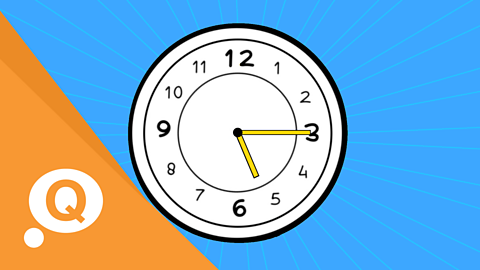If you want to talk about school (Sorry, something went wrongCheck your connection, refresh the page and try again.) in French, here are some useful words and phrases to help you.
The 1-2-3 challenge
Join Scottish pupils as they give French a go!
Listen and guess what they are saying before trying yourself.
BOY 1: Tu as un crayon s'il te plaît ?
BOY 2: Oui, j'ai un crayon, voilĂ
BOY 1: Merci!
BOY 3: Tu as une règle s’il te plait?
BOY 4: Non je n’ai pas de règle.
Tip: This video can be used as an interactive introduction to this topic or as a recap on key vocabulary and phrases already learnt.
Remember!
It doesn't matter if your pronunciation isn't perfect. Try your best and have fun!
How to say what you like and don't like
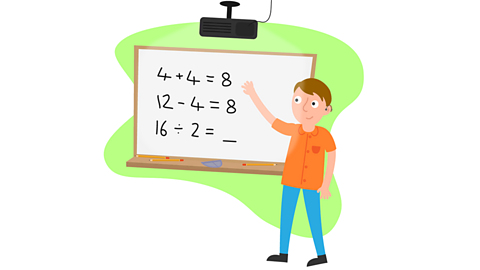
You can talk about which subjects you like and which you don’t like. To do this, you use the verb Sorry, something went wrongCheck your connection, refresh the page and try again. – to like.
- Sorry, something went wrongCheck your connection, refresh the page and try again. – I like French
You usually use Sorry, something went wrongCheck your connection, refresh the page and try again. for I, but as aimer begins with a vowel, use j' instead as it makes it easier to say.
- Je + aime = Sorry, something went wrongCheck your connection, refresh the page and try again.
Did you notice that the ending on aimer for 'I' is e, not er?
This is because aimer is the infinitive form of the verb and the ending of the verb changes according to who is doing the action, so aimer becomes j'aime.
If you want to talk about what you don't like, you need to make the sentence negative and say not.
To make a sentence negative, add ne before the verb, or n' if the verb begins with a vowel. Then add pas after it.
- Sorry, something went wrongCheck your connection, refresh the page and try again. – I don’t like maths

School subjects in French
Here are some subjects, so you can talk about what you like and don't like.
| French | English |
|---|---|
| Sorry, something went wrongCheck your connection, refresh the page and try again. | English |
| Sorry, something went wrongCheck your connection, refresh the page and try again. | biology |
| Sorry, something went wrongCheck your connection, refresh the page and try again. | chemistry |
| Sorry, something went wrongCheck your connection, refresh the page and try again. | art |
| Sorry, something went wrongCheck your connection, refresh the page and try again. | PE |
| Sorry, something went wrongCheck your connection, refresh the page and try again. | French |
| Sorry, something went wrongCheck your connection, refresh the page and try again. | geography |
| Sorry, something went wrongCheck your connection, refresh the page and try again. | IT |
| Sorry, something went wrongCheck your connection, refresh the page and try again. | maths |
| Sorry, something went wrongCheck your connection, refresh the page and try again. | music |
| Sorry, something went wrongCheck your connection, refresh the page and try again. | history |
| Sorry, something went wrongCheck your connection, refresh the page and try again. | physics |
| Sorry, something went wrongCheck your connection, refresh the page and try again. | science |
Did you notice that in French, you need to say the word for 'the' in front of the school subject? So it is:
- Sorry, something went wrongCheck your connection, refresh the page and try again. before a masculine noun
- Sorry, something went wrongCheck your connection, refresh the page and try again. before a feminine noun
- Sorry, something went wrongCheck your connection, refresh the page and try again. before a noun beginning with a vowel
- Sorry, something went wrongCheck your connection, refresh the page and try again. if the school subject is plural (more than one)
Talking about your favourite subject
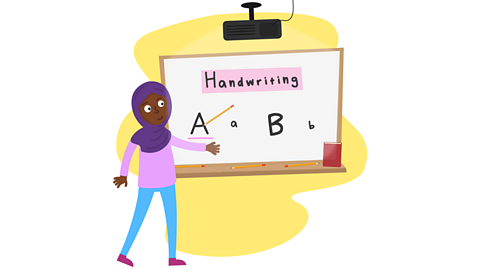
You can also say what your favourite subject is.
To do this, you use the question word Quelle est (what is). Then add ta (your) and matière préférée (favourite subject).
- Sorry, something went wrongCheck your connection, refresh the page and try again. – What's your favourite subject?
So to answer, you change ta to ma, which means 'my'.
- Sorry, something went wrongCheck your connection, refresh the page and try again. – My favourite subject is English
- Sorry, something went wrongCheck your connection, refresh the page and try again. – My favourite subject is French

Days of the week in French
You can say what subjects you study on different days. The verb 'to study' is Sorry, something went wrongCheck your connection, refresh the page and try again..
To say 'I', use J' instead of Je as Ă©łŮłÜ»ĺľ±±đ°ů starts with a vowel and this makes it easier to say. Don't forget that the ending of the verb will now be e not er.
- Sorry, something went wrongCheck your connection, refresh the page and try again. – On Mondays, I study French
- Sorry, something went wrongCheck your connection, refresh the page and try again. – On Tuesdays, I study art
Did you notice that you need to use le (the) before the day of the week in this phrase? This is the word to say 'on' a particular day of the week.
Here are the days of the week:
| French | English |
|---|---|
| Sorry, something went wrongCheck your connection, refresh the page and try again. | Monday |
| Sorry, something went wrongCheck your connection, refresh the page and try again. | Tuesday |
| Sorry, something went wrongCheck your connection, refresh the page and try again. | Wednesday |
| Sorry, something went wrongCheck your connection, refresh the page and try again. | Thursday |
| Sorry, something went wrongCheck your connection, refresh the page and try again. | Friday |
| Sorry, something went wrongCheck your connection, refresh the page and try again. | Saturday |
| Sorry, something went wrongCheck your connection, refresh the page and try again. | Sunday |
Subjects and daily plans
If you want to talk about what your class will be studying today, you can say Sorry, something went wrongCheck your connection, refresh the page and try again.(today) Sorry, something went wrongCheck your connection, refresh the page and try again. (we are studying) and then adding the school subject.
| French | English |
|---|---|
| Sorry, something went wrongCheck your connection, refresh the page and try again. | Today we are studying… |
| Sorry, something went wrongCheck your connection, refresh the page and try again. | maths / numeracy |
| Sorry, something went wrongCheck your connection, refresh the page and try again. | English/literacy |
| Sorry, something went wrongCheck your connection, refresh the page and try again. | French |
| Sorry, something went wrongCheck your connection, refresh the page and try again. | PE |
Instructions in the classroom

Your teacher might use instructions in the classroom. Here are some phrases to help you understand.
All the verbs end in ez. This ending on a verb tells you that it is a command.
| French | English |
|---|---|
| Sorry, something went wrongCheck your connection, refresh the page and try again. | sit down |
| Sorry, something went wrongCheck your connection, refresh the page and try again. | listen |
| Sorry, something went wrongCheck your connection, refresh the page and try again. | raise your hand |
| Sorry, something went wrongCheck your connection, refresh the page and try again. | stand up |
| Sorry, something went wrongCheck your connection, refresh the page and try again. | tidy up your things |
| Sorry, something went wrongCheck your connection, refresh the page and try again. | put away your chairs |
| Sorry, something went wrongCheck your connection, refresh the page and try again. | look |
| Sorry, something went wrongCheck your connection, refresh the page and try again. | repeat |
School objects in French
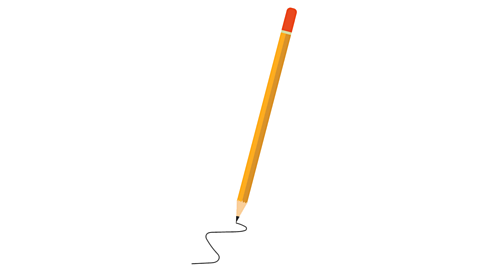
If you need something like a ruler or a pencil, here are some phrases that you can use.
Use the word for 'you' (Sorry, something went wrongCheck your connection, refresh the page and try again.) and the correct part of the verb 'to have' (Sorry, something went wrongCheck your connection, refresh the page and try again.) which is Sorry, something went wrongCheck your connection, refresh the page and try again..
To make a question, you don't need a word like 'do' as in English, just use your question voice. This means that your voice goes up at the end of a sentence, turning it into a question.
- Sorry, something went wrongCheck your connection, refresh the page and try again. – Do you have a pencil?
- Sorry, something went wrongCheck your connection, refresh the page and try again. – Do you have a pen?
To reply, use I - J' and the correct part of the verb avoir which is Sorry, something went wrongCheck your connection, refresh the page and try again..
- Sorry, something went wrongCheck your connection, refresh the page and try again. – Yes, I have a pencil
- Sorry, something went wrongCheck your connection, refresh the page and try again. – Yes, I have a pen

| French | English |
|---|---|
| Sorry, something went wrongCheck your connection, refresh the page and try again. | Do you have…? |
| Sorry, something went wrongCheck your connection, refresh the page and try again. | a pen |
| Sorry, something went wrongCheck your connection, refresh the page and try again. | a pencil |
| Sorry, something went wrongCheck your connection, refresh the page and try again. | a rubber |
| Sorry, something went wrongCheck your connection, refresh the page and try again. | a ruler |
| Sorry, something went wrongCheck your connection, refresh the page and try again. | an exercise book |
| Sorry, something went wrongCheck your connection, refresh the page and try again. | colouring pencils |
| Sorry, something went wrongCheck your connection, refresh the page and try again. | colouring pens |
| Sorry, something went wrongCheck your connection, refresh the page and try again. | paper |
| Sorry, something went wrongCheck your connection, refresh the page and try again. | glue |
Key French sounds
Below are some important French sounds that you have heard in this topic. Try practising them yourself out loud.
- u, Ă»
This is not a sound in the English language. Form your lips as though you are going to whistle and then say the English sound for the letters ee.
Sorry, something went wrongCheck your connection, refresh the page and try again. – you
- o
The letter o has two sounds in French. When it is not at the end of a word, it sounds the same as the o in the English word 'hot'. Remember that the e on the end of the word is silent.
Sorry, something went wrongCheck your connection, refresh the page and try again. – biology
- i, Ă®, y
The letter i always makes the same sound in French. Spread your lips in a wide grin and show your teeth to make this sound. There are two in the word for 'chemistry'. The e on the end of the word is silent.
Sorry, something went wrongCheck your connection, refresh the page and try again. – chemistry
More on Talking topics
Find out more by working through a topic
- count5 of 12

- count6 of 12

- count7 of 12
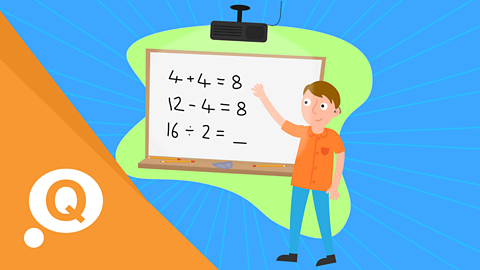
- count8 of 12
